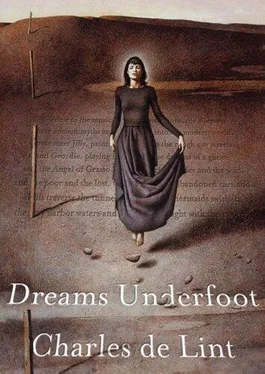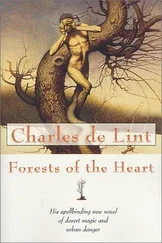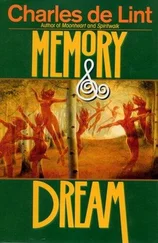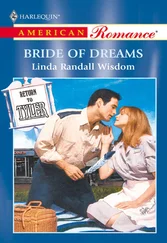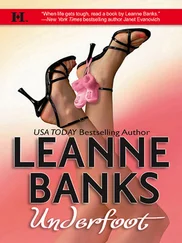There was less dust and dirt here. No litter, nor the remains of the skells’ fires. No broken bottles, nor the piles of newspapers and ratty blanketing that served the skells as bedding. The buildings seemed in better repair. The air had a clean, dry smell to it, rather than the close, musty reek of refuse and human wastes that it carried closer to the entrance.
And there were no people.
From when they’d first stepped through the steel door in Grasso Street Station’s east tunnel, she hadn’t seen a bag lady or wino or any kind of skell, and that in itself was odd because they were always down here. But there was something sharing the darkness with them. Something watched them, marked their progress, followed with a barely discernible pad of sly footsteps in their wake and on either side.
The drum seemed warm against the skin of her hand. The blemish on her other palm prickled with itchiness. Her shoulder muscles were stiff with tension.
“Not far now,” Goon said softly and Jilly suddenly understood what it meant to jump out of one’s skin.
The beam of her flashlight made a wild arc across the faces of the buildings on either side of her as she started. Her heartbeat jumped into second gear.
“What do you see?” Meran asked, her voice calm.
The beam of her flashlight turned towards Goon and he pointed ahead.
“Turn off your flashlights,” he said.
Oh sure, Jilly thought. Easy for you to say.
But she did so a moment after Meran had. The sudden darkness was so abrupt that Ply thought she’d gone blind. But then she realized that it wasn’t as black as it should be. Looking ahead to where Goon had pointed, she could see a faint glow seeping onto the street ahead of them. It was a little less than a half block away, the source of the light hidden behind the squatting bulk of a halftumbled-down building.
“What could it ... ?” Jilly started to say, but then the sounds began, and the rest of her words dried up in her throat.
It was supposed to be music, she realized after a few moments, but there was no discernible rhythm and while the sounds were blown or rasped or plucked from instruments, they searched in vain for a melody.
“It begins,” Goon said.
He took the lead, hurrying them up to the corner of the street.
“What does?” Jilly wanted to know.
“The king appears—as he must once a moon. It’s that or lose his throne.”
Jilly wanted to know what he was talking about—better yet, how he knew what he was talking about—but she didn’t have a chance. The discordant notmusic scraped and squealed to a kind of crescendo. Suddenly they were surrounded by the capering forms of dozens of skookin that bumped them, thin long fingers tugging at their clothing. Jilly shrieked at the first touch. One of them tried to snatch the drum from her grip. She regained control of her nerves at the same time as she pulled the artifact free from the grasping fingers.
“1789,” she said. “That’s when the Bastille was stormed and the French Revolution began. Uh, 1807, slave trade was abolished in the British Empire. 1776, the Declaration of Independence was signed.”
The skookin backed away from her, as did the others, hissing and spitting. The notmusic continued, but its tones were softened.
“Let me see,” Jilly went on. “Uh, 1981, the Argentines invade—I can’t keep this up, Meran—the Falklands. 1715 ... that was the year of the first Jacobite uprising.”
She’d always been good with historical trivia—having a head for dates—but the more she concentrated on them right now, the further they seemed to slip away. The skookin were regarding her with malevolence, just waiting for her to falter.
“1978,” she said. “Sandy Denny died, falling down some stairs ....”
She’d got that one from Geordie. The skookin took another step back and she stepped towards them, into the light, her eyes widening with shock. There was a small park there, vegetation dead, trees leafless and skeletal, shadows dancing from the light cast by a fire at either end of the open space. And it was teeming with skookin.
There seemed to be hundreds of the creatures. She could see some of the musicians who were making that awful din—holding their instruments as though they’d never played them before. They were gathered in a semicircle around a dais made from slabs of pavement and building rubble. Standing on it was the weirdest looking skookin she’d seen yet. He was kind of withered and stood stiffly. His eyes flashed with a kind of dead, cold light. He had the grimmest look about him that she’d seen on any of them yet.
There was no way her little bits of history were going to be enough to keep back this crew. She turned to look at her companions. She couldn’t see Goon, but Meran was tugging her flute free from its carrying bag.
What good was that going to do? Jilly wondered.
“It’s another kind of truth,” Meran said as she brought the instrument up to her lips.
The flute’s clear tones echoed breathily along the street, cutting through the jangle of notmusic like a glass knife through muddy water. Jilly held her breath. The music was so beautiful. The skookin cowered where they stood. Their cacophonic noisemaking faltered, then fell silent.
No one moved.
For long moments, there was just the clear sound of Meran’s flute, breathing a slow plaintive air that echoed and sang down the street, winding from one end of the park to the other.
Another kind of truth, Jilly remembered Meran saying just before she began to play. That’s exactly what this music was, she realized. A kind of truth.
The fluteplaying finally came to an achingly sweet finale and a hush fell in Old City. And then there was movement. Goon stepped from behind Jilly and walked through the still crowd of skookin to the dais where their king stood. He clambered up over the rubble until he was beside the king. He pulled a large clasp knife from the pocket of his coat. As he opened the blade, the skookin king made a jerky motion to get away, but Goon’s knife hand moved too quickly.
He slashed and cut.
Now he’s bloody done it, Jilly thought as the skookin king tumbled to the stones. But then she realized that Goon hadn’t cut the king. He’d cut the air above the king. He’d cut the—her sudden realization only confused her more—strings holding him?
“What ... ?” she said.
“Come,” Meran said.
She tucked her flute under her arm and led Jilly towards the dais. “This is your king,” Goon was saying.
He reached down and pulled the limp form up by the finewebbed strings that were attached to the king’s arms and shoulders. The king dangled loosely under his strong grip—a broken marionette. A murmur rose from the crowd of skookin—part ugly, part wondering.
“The king is dead,” Goon said. “He’s been dead for moons. I wondered why Old City was closed to me this past half year, and now I know.”
There was movement at the far end of the park—a fleeing figure. It had been the king’s councilor, Goon told Jilly and Meran later. Some of the skookin made to chase him, but Goon called them back.
“Let him go,” he said. “He won’t return. We have other business at hand.”
Meran had drawn Jilly right up to the foot of the dais and was gently pushing her forward.
“Go on,” she said.
“Is he the king now?” Jilly asked.
Meran smiled and gave her another gentle push.
Jilly looked up. Goon seemed just like he always did when she saw him at Bramley’s—grumpy and out of sorts. Maybe it’s just his face, she told herself, trying to give herself courage. There were people who look grumpy no matter how happy they are. But the thought didn’t help contain her shaking much as she slowly made her way up to where Goon stood.
Читать дальше
